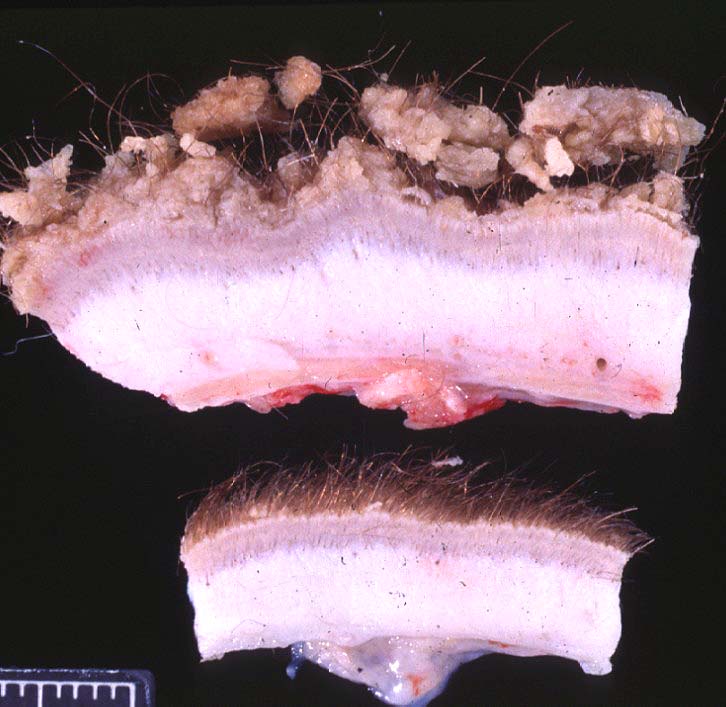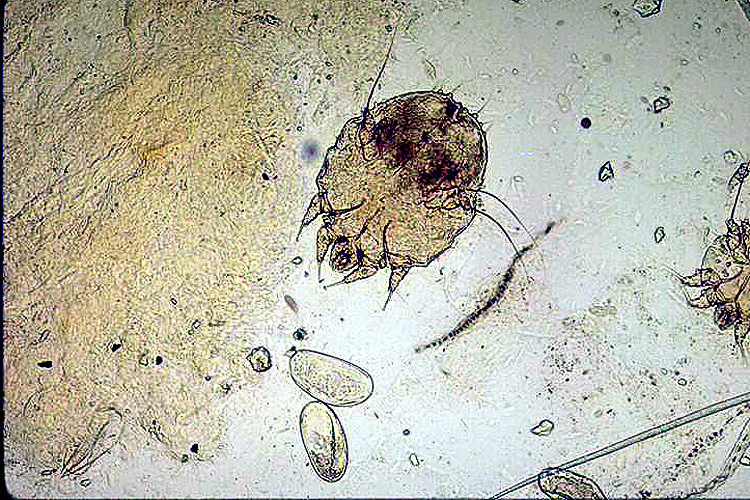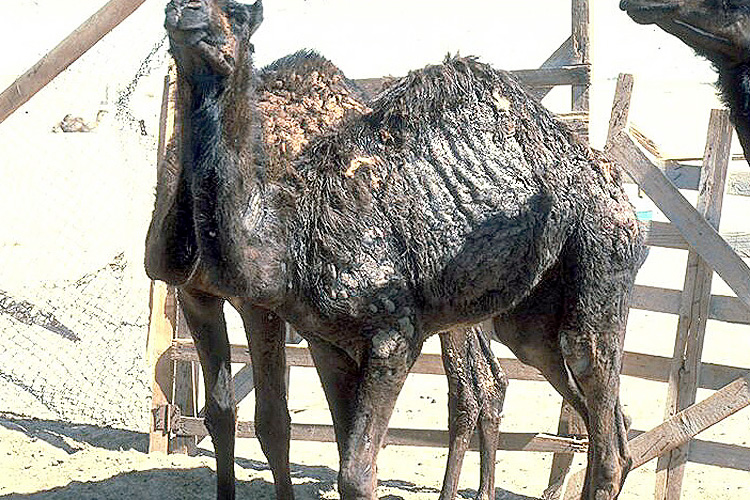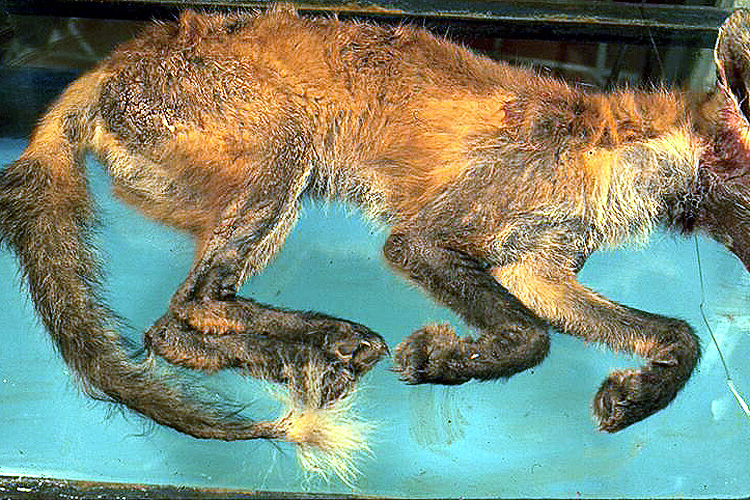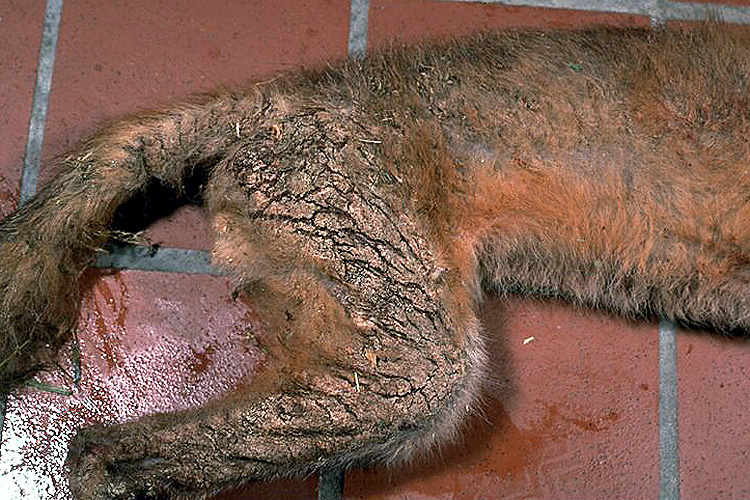Today’s path rounds are on 𝐬𝐚𝐫𝐜𝐨𝐩𝐭𝐢𝐜 𝐦𝐚𝐧𝐠𝐞! This was a request ![]()
𝐖𝐡𝐚𝐭 𝐢𝐬 𝐢𝐭?
𝐒𝐚𝐫𝐜𝐨𝐩𝐭𝐢𝐜 𝐦𝐚𝐧𝐠𝐞 is a type of 𝐦𝐚𝐧𝐠𝐞 (skin condition caused by mites) caused by the mite 𝐒𝐚𝐫𝐜𝐨𝐩𝐭𝐞𝐬 𝐬𝐜𝐚𝐛𝐢𝐞𝐢. You might know this mite as the causative agent of 𝐬𝐜𝐚𝐛𝐢𝐞𝐬 in humans! Gross.
𝐖𝐡𝐨 𝐠𝐞𝐭𝐬 𝐢𝐭?
Pretty much any species can get this, but it is most common in pigs, dogs and goats.
𝐖𝐡𝐚𝐭 𝐜𝐚𝐮𝐬𝐞𝐬 𝐢𝐭?
Sarcoptes mites are acquired by direct contact with infected animals, or indirect contact through things like bedding. It is considered highly contagious, and these mites can spread to humans, so there needs to be a lot of biosecurity around infected animals to prevent animal to human transmission.
In the affected animal, these mites burrow under the skin and feeds on skin cells, forming a small pocket. In their little pocket, the females lay their eggs, which will develop into larvae, which either reside in the pocket they were laid in, or move elsewhere and form a new pocket. Under certain conditions, these larvae can survive in the environment off the host, allowing the disease to be spread indirectly, without contacting an infected animal.
𝐖𝐡𝐲 𝐢𝐬 𝐭𝐡𝐢𝐬 𝐚 𝐩𝐫𝐨𝐛𝐥𝐞𝐦?
The burrowing of these mites causes damage to skin directly, as well as can cause irritation and even allergic reactions. This irritation and allergy is highly 𝐩𝐫𝐮𝐫𝐢𝐭𝐢𝐜 (itchy), so these animals end up scratching incessantly trying to relieve themselves of their itchiness. This often manifests as severe hair loss due to itching, decreased production in food and fibre species, and may lead to secondary bacterial infections if their itching produces open scrapes. In wildlife, these animals may become so itchy that that stop hunting or eating, leading them to die from starvation.
𝐇𝐨𝐰 𝐢𝐬 𝐢𝐭 𝐝𝐢𝐚𝐠𝐧𝐨𝐬𝐞𝐝?
Typically this disease is diagnosed on a 𝐬𝐤𝐢𝐧 𝐬𝐜𝐫𝐚𝐩𝐢𝐧𝐠, where the skin is deeply scraped to release some mites from their little burrows in the skin. This scraping is then looked at under a microscope, where the mites, larvae and eggs can be seen to confirm the diagnosis.
𝐇𝐨𝐰 𝐢𝐬 𝐢𝐭 𝐭𝐫𝐞𝐚𝐭𝐞𝐝? 𝐇𝐨𝐰 𝐢𝐬 𝐢𝐭 𝐩𝐫𝐞𝐯𝐞𝐧𝐭𝐞𝐝?
This disease is treated by giving antiparasitic medications and using antiparasitic shampoos to bathe the animal. The environment must also be treated with antiparasitics or disposing of bedding and soft materials, in order to prevent the animal from becoming reinfected. The best method of prevention is simply to keep your animal away from infected animals!
𝐏𝐡𝐨𝐭𝐨𝐬
1) An example of what the mites do to the skin! The bottom section is normal skin, and the top section has a severe thickening in response to the mites.
2) A mite as seen on a skin scraping!
3-8) Various critters with sarcoptic mange. Notice the hair loss and crusty looking skin in the affected areas.
𝐒𝐨𝐮𝐫𝐜𝐞𝐬
Maxie, G. Jubb, Kennedy and Palmer’s Pathology of Domestic Animals, Volume 1. Sixth Edition.
Photos 1-8 © Noah’s Arkive contributors Harrington, Williams, Vtsharner, Read, King licensed under CC BY-SA 4.0.

